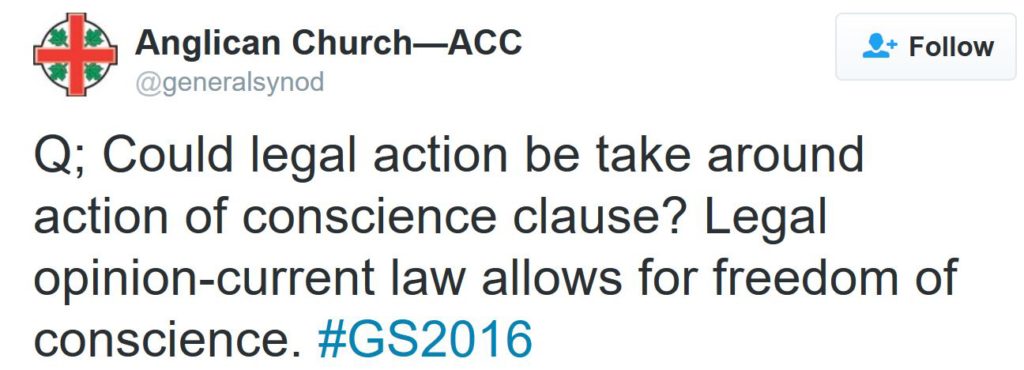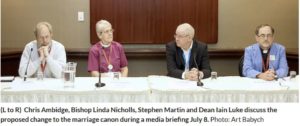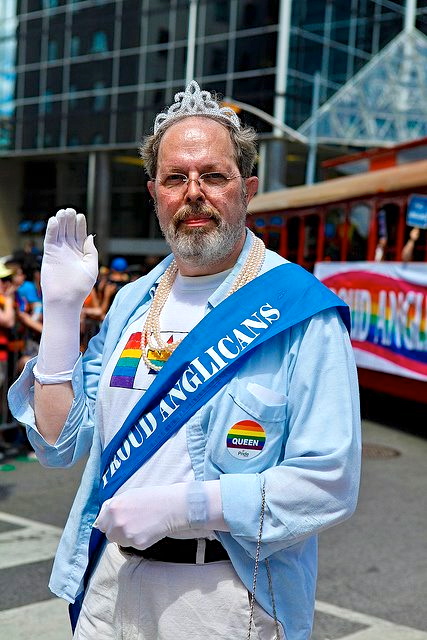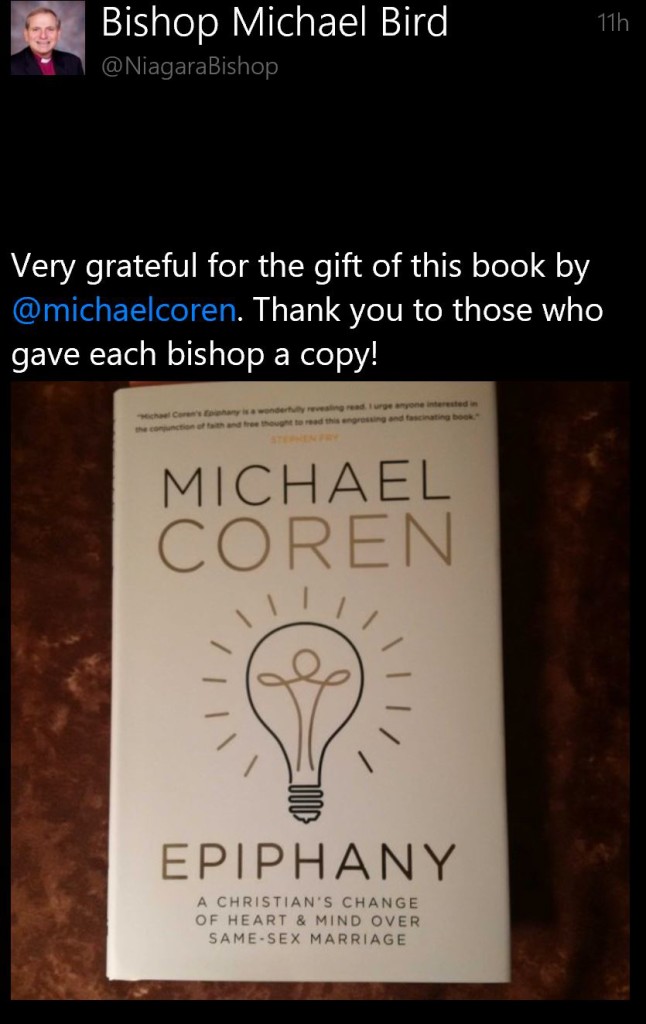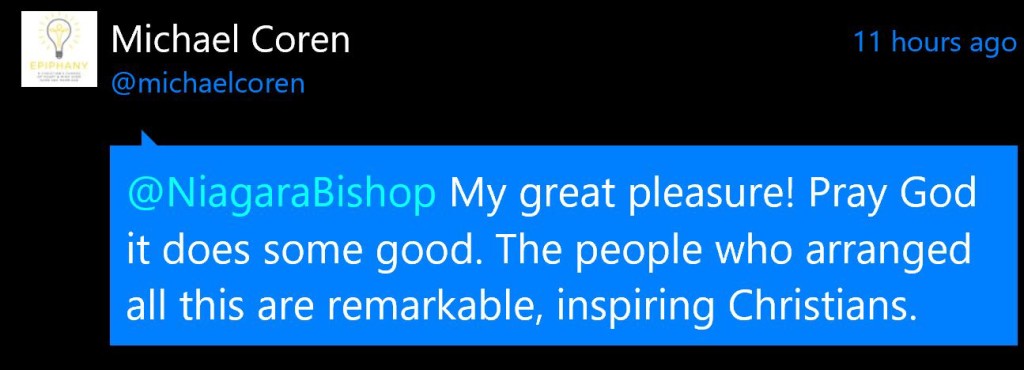Bishop Mary Irwin-Gibson will vote in favour of same-sex marriage at the July General Synod. It’s hard to see how she could do otherwise since she has a number of clergy in her employ who are civilly married to other men.
The reasons she gives for her decision live up to the high standard of language-twisting set by other Anglican Church of Canada bishops. The church, she says:
“has the right and obligation to prayerfully consider new things and not simply to march in lockstep with society,” said Gibson. But, she added, “neither are we to remain stuck by interpretations of Biblical principles, which not everyone shares.
Except, of course, the new thing here requires precision marching in lockstep with society and to discard 2000 years of biblical understanding because not everyone agrees is to discard the entire bible since, well, not everyone agrees.
She continues by claiming the vote in favour makes her an ambassador[s] of reconciliation:
“If we are to be ambassadors of reconciliation, disciples of Christ, I see the potential in ministering grace and sacraments to more people and in calling all married couples to be models of Christian discipleship and hospitality.”
Except, the Anglican obsession with homosexuality has already shattered the Anglican communion so it can hardly be a reconciling influence.
She claims that:
We will not all agree but we are one body.
And:
it is possible to achieve unity in diversity
Except that we have not been one body since Gene Robinson was consecrated and the diocese of New Westminster began blessing same-sex couples. Even Justin Welby has had to admit that there is no unity.
It sounds as if the Diocese of Montreal has decided to perform same-sex marriages even if the vote fails:
Several dioceses are more than ready to go ahead and some don’t ever see that day coming. The chancellor of General Synod is being consulted and we will see what happens after General Synod concludes.
The Shared Episcopal Ministry has withered away, as, surely, the conscience clause allowing clergy to refuse to marry same-sex couples would, too:
The bishop also confirmed that since she assumed the episcopacy almost nine months ago a compromise arrangement known as Shared Episcopal Ministry, instituted by her predecessor, Bishop Barry Clarke, in 2011, to accommodate six clergy and several parishes who saw him as too favourable to same-sex marriage has been allowed to lapse.
Taken together, in context, Mary Irwin-Gibson’s charge to synod was, even allowing for the fact that she is an Anglican bishop, a masterpiece of prating twaddle.
Like this:
Like Loading...
